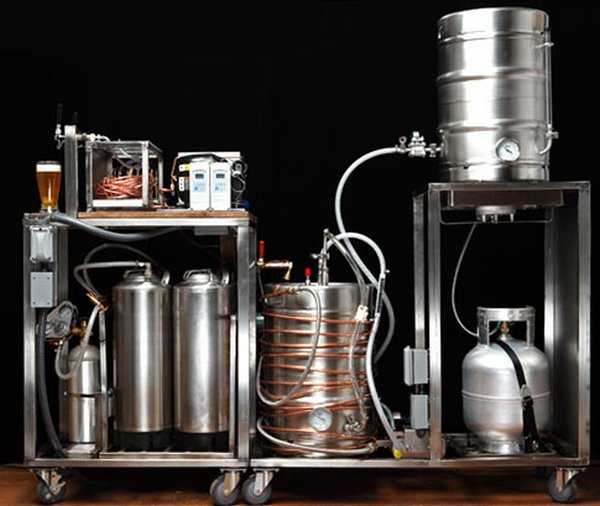
Happy Hours Brewing Your Own Beer – And Lots Of Them
Home brewing is not exactly a new thing; at one time every farmhouse, small or large, would have a regular brewing session, fitted in somewhere amongst the cheese making, butter churning and bread baking routines. Traditionally, prior to the idea of boiling water as a way to make it safe, ale was served with most meals, including breakfast! However, during the nineteenth and twentieth century the tradition died out as large commercial brewing took over and smaller breweries began to disappear, along with household brewing
On occasion the home brew fashion has raised its head; in the seventies and eighties my parents contributed to one such revival, fermenting their own near-lethal elderflower concoctions served up to surprisingly willing (and ultimately glassy eyed and giggly) Methodist neighbours. Home brewing is once again seeing a huge resurgence thanks, in part no doubt, to the recession.
Fascinating Traditions
Another factor seems to be at play in the growing interest in brewing your own beer and wine. A backlash has been going on for some years against the bigger breweries whose offerings are perceived as bland, largely tasteless and characterless. A growing interest in small producers, traditional production methods and the variety and integrity that these brewers offer has been a feature of the increased interest in small and locally sourced produce. The fact the brewing beer at home is actually not at all difficult and costs a fraction of the price of buying beer and wine in traditional outlets has also certainly contributed.
Starting Out
There are a number of different routes to take when brewing your own beer or creating wines. For complete novices the simplest route is the ‘beer kit’ or ‘wine kit’. These are highly affordable – a beer kit to brew forty pints will cost around £12.00 – £15.00 for a basic kit. Wine kits vary in price but a basic one gallon wine kit will cost around the same sort of price. Compared to even the cheapest of cheap supermarket offerings the pence per pint result is impressive.
For more advanced brewers suppliers will happily provide a range of grains and hops, while those making homemade wine only need to rely on their imagination and the locally available flora to come up with some delicious, unusual and incredibly cheap options. One of the reasons that home brewing is so cheap is that it’s not subject to alcohol duty or the inquisitive scrutiny of HMRC. The only exception is the distillation of spirits, which is illegal in the UK without obtaining a licence – a process that is slightly more complex than finding a solution to the Israeli/Palestinian conflict.
The Barrel and Bucket
For basic brewing, using kits, there are some items of equipment you’ll need. Beer kits come with all the essential ingredients but for first time home brewers you’ll also need to acquire a fermentation barrel. These are simply large ‘food-grade’ plastic buckets which can be picked up from home brew suppliers as well as some DIY stores. If you want to barrel the beer you’ll also need a barrel! These can be picked up from the same sources – as can reusable bottles and bottling kits. A syphon will be essential – again sourced from home brew suppliers.
For wine makers a supply of demijohns and bungs will be necessary. The equipment varies in price from supplier to supplier but in general you should be able to equip your home brewer for under £70 (or less if you can find a supplier who’ll provide all the required equipment as a starter pack).
This is a once only spend and the equipment can be reused for each batch of beer or wine; most suppliers will offer sterilisation solutions, which aren’t the cheapest ingredient, but boiling water (and/or a bleach solution) will sterilise equipment as effectively at a fraction of the cost. The results, with practice, can be impressive and producing your own, bespoke brews, fine craft beers or unusual wines is far easier than you might imagine. The brewing process is remarkably simple and enjoyable – if a little messy on occasion. Sampling the finished product is also rather fun!
Jasmin Blunt is a freelance writer, who, when not working, enjoys creating her own homebrew along with many other experimental adventures in the kitchen.




